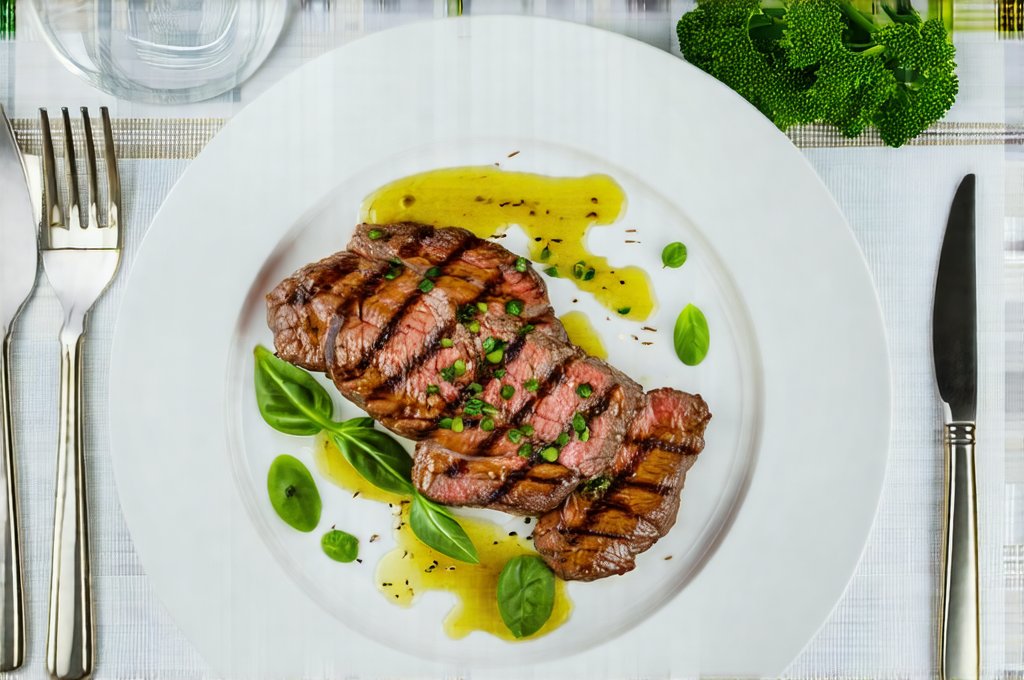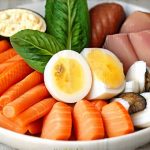Waking up feeling like a balloon is nobody’s idea of a good start to the day. That uncomfortable tightness, the visible bloat, the general feeling of being off – it’s often directly linked to what we eat (and when) for dinner. Many people struggle with overnight bloating without realizing simple adjustments to their evening meals can make a world of difference. It’s not always about eliminating entire food groups, but rather understanding how different foods digest and interact within our bodies, particularly as we prepare for sleep. This article will delve into practical strategies you can implement tonight to minimize digestive distress and wake up feeling lighter and more comfortable.
The key is recognizing that digestion doesn’t magically pause when we go to bed. Our digestive system continues working throughout the night, and a heavy or difficult-to-digest dinner puts extra strain on it while we’re trying to rest. This can lead to gas production, water retention, and ultimately, bloating. Furthermore, our metabolic rate slows down during sleep, meaning food lingers in our systems for longer periods. Understanding these physiological processes allows us to make informed choices about what constitutes a “bloat-free” dinner. The goal isn’t deprivation; it’s optimization – finding ways to enjoy delicious meals without sacrificing your morning comfort. It might also be helpful to consider the best time to eat dinner in order to prevent nighttime reflux.
Dinner Timing and Portion Control
The timing of your dinner plays a surprisingly large role in overnight bloating. Ideally, you should aim to finish eating at least 2-3 hours before bedtime. This provides sufficient time for initial digestion to occur, reducing the workload on your system while you sleep. Eating too close to bedtime forces your body to try and digest food when it should be focusing on restorative processes. Think of it like asking a construction crew to build something while simultaneously trying to dismantle another structure – it’s inefficient and stressful. – Consider setting an “eating curfew” for yourself, sticking to it as consistently as possible.
– Even small snacks close to bedtime can contribute to bloating, so be mindful of late-night cravings. If you struggle with this, understanding how to avoid digestive overload at dinner may help.
Portion control is equally crucial. Overeating, even healthy foods, puts a significant burden on your digestive system. When you overwhelm your gut with too much food at once, it’s more likely to ferment undigested particles, leading to gas and bloating. Focus on moderate portion sizes that leave you feeling satisfied but not stuffed. Pay attention to your body’s hunger cues; eating slowly and mindfully can help you recognize when you’ve had enough. A good rule of thumb is to fill your plate with approximately 50% vegetables, 25% protein, and 25% carbohydrates – adjusting these ratios based on your individual needs and preferences. Prioritizing quality over quantity is always a smart approach.
Food Choices for Digestive Ease
Certain foods are inherently more likely to cause bloating than others. Highly processed foods, rich in sodium and artificial ingredients, often lead to water retention and digestive discomfort. Similarly, foods high in FODMAPs (Fermentable Oligosaccharides, Disaccharides, Monosaccharides And Polyols) can trigger bloating in sensitive individuals. These carbohydrates are poorly absorbed in the small intestine, leading to fermentation by gut bacteria and gas production. While eliminating all FODMAPs isn’t necessary for everyone, being mindful of them can be beneficial. – Common high-FODMAP foods include onions, garlic, apples, pears, wheat, and dairy products (for those lactose intolerant).
– Experiment with reducing your intake of these foods to see if it makes a difference. You might find that best foods to reduce bloating are easier on the digestive system.
Focus instead on easily digestible options that are gentle on the gut. Lean proteins like chicken or fish, cooked vegetables (steamed or roasted are often better tolerated than raw), and complex carbohydrates like quinoa or sweet potatoes are excellent choices. Incorporating probiotic-rich foods – such as yogurt with live cultures, kefir, or fermented vegetables – can also support a healthy gut microbiome, aiding in digestion and reducing bloating. Remember that hydration is vital; drinking plenty of water throughout the day helps keep things moving smoothly through your digestive system. Avoid sugary drinks and excessive caffeine, which can exacerbate bloating. A dinner built around whole, unprocessed foods is generally less likely to cause overnight discomfort. You may also want to consider what to avoid on grocery runs if you have digestive issues.
Minimizing Gas-Producing Foods
Certain vegetables are notorious for causing gas, even in people without underlying sensitivities. Cruciferous vegetables – broccoli, cauliflower, cabbage, Brussels sprouts – contain raffinose, a complex sugar that’s difficult to digest. While these veggies offer incredible nutritional benefits, it’s wise to consume them in moderation for dinner or prepare them differently to make them more digestible. – Cooking cruciferous vegetables thoroughly can help break down some of the raffinose.
– Combining them with digestive enzymes (available over-the-counter) may also be helpful.
Legumes – beans, lentils, chickpeas – are another common culprit. They contain oligosaccharides that require specific enzymes to digest. Soaking legumes overnight and rinsing them thoroughly before cooking can reduce their gas-producing potential. Again, starting with smaller portions is key. Gradually increasing your intake allows your body time to adapt and build up the necessary digestive enzymes. Avoiding combining these foods with other difficult-to-digest items (like dairy) may also lessen discomfort.
Hydration & Digestive Aids
As mentioned earlier, staying adequately hydrated is paramount for optimal digestion. Water helps move food through your digestive tract efficiently, preventing constipation and reducing bloating. Aim to drink water consistently throughout the day, rather than chugging large amounts with your meal. Herbal teas – peppermint, ginger, chamomile – can also soothe the digestive system and reduce inflammation. – Peppermint tea is particularly known for its ability to relax intestinal muscles, relieving gas and bloating.
– Ginger has anti-inflammatory properties that can aid digestion. If you struggle with IBS or bloating, consider drinks to avoid.
Consider incorporating digestive enzymes into your routine if you frequently experience bloating after dinner. These supplements help break down carbohydrates, proteins, and fats, making them easier to digest. Probiotic supplements can also restore balance to the gut microbiome, improving overall digestive health. However, it’s essential to remember that supplements are not a substitute for a healthy diet and lifestyle; they should be used as complementary tools.
Mindful Eating Practices
Finally, how you eat is just as important as what you eat. Rushing through meals without chewing thoroughly can overwhelm your digestive system and lead to bloating. Take your time, savor each bite, and chew your food until it’s almost liquid. This pre-digestion process makes it easier for your stomach to break down the food and reduces the amount of work required by your intestines. – Avoid distractions like television or smartphones while eating; focus on your meal and listen to your body’s hunger cues.
– Eating in a calm and relaxed environment promotes better digestion.
Avoid lying down immediately after eating. Gravity helps with digestion, so staying upright for at least 30 minutes allows food to move more easily through your digestive system. Simple practices like taking a short walk after dinner can also aid digestion and reduce bloating. Cultivating mindful eating habits is a long-term investment in your digestive health. You may benefit from the best time to take a walk after eating with GERD. Ultimately, finding what works best for you requires experimentation and self-awareness. Paying attention to how different foods affect your body and making small, sustainable changes to your evening routine can significantly improve your sleep quality and wake you up feeling refreshed and comfortable.


















